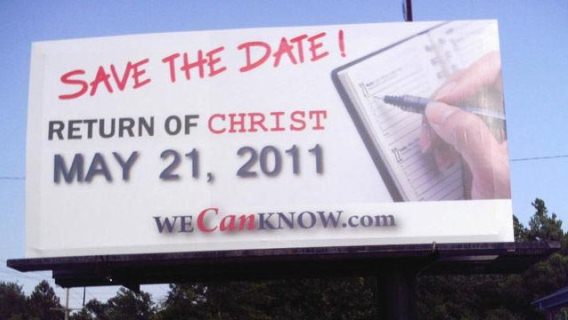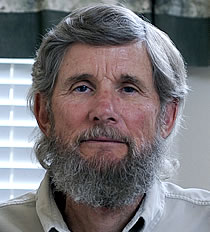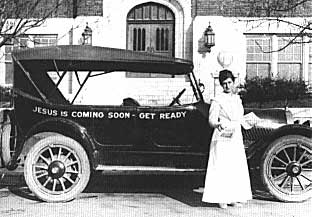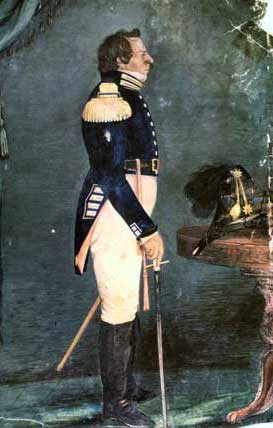First Annual Adrian VEX Robotics Competition
Yesterday Adrian's award-winning robotics program held their first competition at home. Teams from Kansas City and Clinton, MO joined Adrian for a day of VEX robotics matches. Students have been building their robots over the last few months and practicing the task of picking up balls and putting them into goals. Each match begins with a 20 second period where robots can perform the task autonomously. None of yesterday's teams attempted that, but then it's followed by a a couple of minutes where the teams can use a remote control to drive their robot. And many of these teams were quite well-practiced at driving their robots. Here's an excerpt from one of the matches:
[youtube]rxVOAwvOmXc[/youtube]
Congratulations to Mr. Hogan and all of his students for organizing a great competition. Despite some difficulties, they managed to get through over 70 matches in just a few hours. The team who won the tournament was made up of Adrian students and one robot ended the day undefeated (you can see it in the video above).
Swarm of Flying Robots
This is very cool. Be sure to watch to the end to see the swarms flying in formation.
[youtube]YQIMGV5vtd4[/youtube]
Abraham's Faith
Imagine this scenario. A close friend comes to you and says that they have had a powerful religious experience. The Creator of the universe has audibly spoken to them, commending them for their strong faith. But the voice also made a request. It commanded your friend to take their 13-year-old son, tie him up, stab him in the heart and then burn his body as a sacrifice to the voice. Your friend soberly tells you that he intends to obey the voice. Do you a) congratulate your friend on his strong faith and offer to help carry the wood for the fire, or b) promptly call the police?
Now imagine the same scenario, but rather than a close friend in the present day, it's a stranger in the distant past. Rather than hearing your friend's firsthand account, you read about the story in a legend that has been passed down through the centuries. Do you think of this person who is willing to kill their own child as a hero or a villain?
Of course, I didn't invent this scenario, it comes straight out of the Bible. The story of Abraham and Isaac is told in Genesis 22. This is not some obscure passage that I'm taking out of context. Abraham is a central figure in Christianity, Judaism and Islam, and all three religions include this story as evidence of Abraham's great faith. The Christian New Testament refers to this episode specifically when listing some exemplary displays of faith (Hebrews 11:17-19).
I wish the scenario I presented above was just hypothetical. Tragically, the members of some present-day religions are still asked to place their faith above the well-being of their children. A Jehovah's Witness stood on my front step and told me that if her own child needed a blood transfusion to live, she would rather let them die than to violate her religion's rules against transfusions. Like Abraham, she had faith that her god would raise the child from the dead.
The problem with faith is that, by definition, it's detached from reality. Abraham is considered a hero because he was willing to look past the consequences of his actions and focus on that voice in his head. The Witness at my door was also ready to downplay the consequences of her beliefs. It seems to me that making a decision based on faith is misguided at best. There is a better way.
Or, today's theists can hope that Doc Brown will have intervened and spared them the humiliation of trying to defend and spread a religion supposedly founded by a man who agreed to obey a disembodied voice by killing his son.
Infrastructure: Our Shared Investment
Flush a toilet, take a shower or drive across town. What makes these important, everyday things possible? Over several generations the citizens of our community have pooled their resources in the form of a city government. One of the main functions of that government is to build and maintain the infrastructure that we all depend on: streets, water and sewer. If we want to see our community flourish, we must continue to invest in the maintenance and expansion of these vital systems.
In the summer of 2011, the city street crew applied three inches of asphalt to 1st Street, Old 71 and Kentucky Street. In the summer of 2010, they did the same to 8th Street. That spring the city government purchased the equipment to allow our crew to do this work in-house, stretching your tax dollars to cover as much street as possible. I'm proud of the work of our crew has done and I look forward to seeing the improvements they bring to other streets in the coming years. All of this is possible because the citizens of Adrian voted on a tax issue in 2000 to provide funds for street maintenance. The money was raised ahead of time and the work was done without borrowing money.
In 2010 and 2011 city crews and private contractors replaced over three miles of water mains in the city. These new lines deliver water to local homes and businesses and provide enough pressure to supply fire hydrants around the city. Many of the retired water mains were smaller, corroded, cast-iron pipes.
In 2009, after years of frequent boil orders, the city of Adrian opened its new water treatment facility. The 500,000 gallon per day membrane filtration system was capable of providing clean, safe water to the residents of Adrian for the next two decades at least. In the fall of 2011 the plant capacity was doubled to 1,000,000 gallons per day, enough to provide water to the city of Adrian and Public Water Supply District #5, which serves the surrounding area.
These improvements were possible because of a new contract with District #5 and because we made use of grants and low-interest loans. But, the city also had to increase water rates to cover the ongoing costs of producing cleaner water in the new plant. That rate increase would not have been so dramatic if the city had gradually raised its rates as the old plant approached the end of its life. While I'm convinced that our new water production system is worth the cost, I think there are lessons to be learned when it comes to future infrastructure improvements.
Our sewer system is the next element of our infrastructure that needs some attention. Aging and leaky sewer lines around town are allowing too much water into the system, which risks overloading our simple lagoon based sewage treatment system. In a few spots, the water coursing through leaky sewer lines is even allowing raw sewage to escape the lines after heavy rainfall. The city council has already begun to consult with our engineering company about ways to assess what needs to be done to our sewer system.
For years now, the city has been pursuing grant money for sewer improvements, but we also need to begin to gradually raise our rates. That's why I proposed a $0.50 increase (per 1000 gallons) in December of 2011. The rate change passed, so a household that uses 3000 gallons of water per month will see their sewer bill go from $10.50 per month to $12 per month. I don't take this increase lightly, but I think we should start to invest in our sewer system now rather than waiting until we have an emergency and need a dramatic rate increase.
This spring we will perform some tests on the sewer system and then we’ll be able to plan for addressing the system’s most critical problems. Our sewer rates are still lower than most towns in the area and there will almost certainly be a few more gradual rate increases in the coming years.
We will continue to pursue federal and state funds to help with the costs of these improvements. You may be able to help with one of these. One of the grants we would like to apply for requires that we first collect some data about the income levels of a random selection of households. We have sent out these surveys twice, but there haven’t been enough responses to allow us to apply for the grant. If you received a survey, but didn’t return it, please call or stop by city hall and get another copy of it. It won’t take more than a minute to fill out and it will make a big difference for our infrastructure and the rates we charge over the coming years.
The health of a city’s infrastructure is no accident. It requires careful planning, wise management of limited resources and, most importantly, a shared investment by the citizens of our community.
Money in Politics
The conclusion of the dissenting opinion by Justice Stevens in the case Citizens United v. Federal Election Commission:
At bottom, the Court's opinion is thus a rejection of the common sense of the American people, who have recognized a need to prevent corporations from undermining self government since the founding, and who have fought against the distinctive corrupting potential of corporate electioneering since the days of Theodore Roosevelt. It is a strange time to repudiate that common sense. While American democracy is imperfect, few outside the majority of this Court would have thought its flaws included a dearth of corporate money in politics.
LEGO NXT Segway on my kitchen counter
Practicing for robotics camp. The instructions for this project are here: http://www.nxtprograms.com/segway/index.html
[youtube]EhSCaGMgAJg[/youtube]
The End is Not Near
On May 21, 2011, hundreds of people will wake up with the faithful and eager expectation that they will be taken up to heaven before the day is over. They have been purchasing advertising and traveling around the country to spread the word that the end is near. The prediction was made by radio broadcaster and religious leader Harold Camping. This brings up several questions, including
Should we take this prediction seriously?
What will Camping's followers do when the prediction is proved wrong?
Is this type of behavior a normal part of Christian belief or an aberration?
I'd like to approach these questions by looking at similar situations in history. This is an incomplete list. We can start with Camping himself. This isn't his first time predicting the end of the world.
Harold Camping
September, 1994
In the early 90s, he released a book called 1994? As the title suggests, he was not claiming to be absolutely certain of the date. But when his date came and went without any apparent end of the world, he maintained that his calculations were correct in pointing to it and he continued to have a strong following. He made excuses about mistaken interpretations and the followers who had been so certain that his date was correct were suddenly no longer concerned about 1994.
Michael Travesser
October 31, 2007
Wayne Bent, known to his followers as Michael Travesser, led a small religious sect in New Mexico. He claimed to be the Messiah and predicted that the world would and on October 31, 2007. A documentary film crew from the United Kingdom was on hand when the date arrived. When nothing happened, Bent changed the date to December, 2007 and there was no mass defection from his sect.
Edgar C. Whisenant
Septemember 1988
Edgar C. Whisenant wrote a book called 88 Reasons Why the Rapture Will Be in 1988. He sold more than 4 million copies. When this prediction wasn't fulfilled he went on to set several more dates (1989, 1993, and 1994).
Hal Lindsey
1980s
Hal Lindsey, author of The Late, Great Planet Earth never named a specific date for the end of the world, but he did make several statements suggesting that it would happen during the 1980s. In the early 90s he release a new book called Planet Earth - 2000 A.D. It said that the world would probably end before the year 2000. Despite his failed predictions, Lindsay continued to be a popular author and host of a show on the Trinity Broadcasting Network.
Assemblies of God
1934 or 1935
The Weekly Evangel, an official publication of the church, predicted that World War I would lead to Armageddon. Despite this failed prediction, the Assemblies of God have around 60 million members today.
Charles Taze Russell and the Jehovah's Witnesses
1874
Russell was an important figure in the earliest days of the Jehovah's Witnesses. He believed that 1874 was the date for the return of Jesus. After that date he didn't abandon it but rather claimed that Jesus had returned in 1874 and established an invisible kingdom. Jehovah's Witnesses went on to predict a whole series of dates for the end of the world.
William Miller
March 21, 1844
William Miller was a Baptist preacher who calculated that the return of Jesus would occur on or before March 21, 1884. When this date proved wrong, he pushed it back a month. When that also proved wrong one of his followers set the date as October 22, 1844. Thousands of followers eagerly expected to meet Jesus on this day. Many of them had even given away all of their belongings. The failure of Jesus to appear became known as the Great Disappointment. Many members left the movement, but others stayed and formed the Seventh-day Adventist church.
Mormonism
1830s
From the beginning of the church he established, Joseph Smith told his followers that the world would be ending soon. Though he didn't give specific dates, he did claim to know where it would happen. He directed his followers to build a city called Zion in Jackson County, Missouri. Though Smith prophesied in 1830 that the "hour is nigh and day soon at hand" when Jesus would return, Smith died in 1844 without seeing Jesus return and without his church establishing a city in Jackson County.
Martin Luther
1540s
The founder of the Lutheran Church is said to have predicted, "The world runs and hastens so diligently to its end that it often occurs to me forcibly that the last day will break before we can completely turn the Holy Scripture into German. For it is certain from the Holy Scriptures that we have no more temporal things to expect. All is done and fulfilled." This sense of urgency was also present in other early Lutheran leaders, including Adam Nachenmoser who set the date as 1635.
Joachim of Fiore
1260
Joachim of Fiore, a mystical monk, predicted that 1260 would see the establishment of a Kingdom of the Holy Spirit. He died in 1202 and after his prediction proved false the Catholic Church condemned him as a heretic.
Thiota
847
Thiota predicted the end of the world would happen in 847. She had a large enough following to draw the attention of Catholic bishops, who had her publicly whipped.
Authors of the New Testament
50-120
Several passages in the New Testament claim that the world is about to end. Some examples:
"In just a little while, he who is coming will come and will not delay." (Hebrews 10:34)
"You too, be patient and stand firm, because the Lord’s coming is near." (James 5:8)
"The end of all things is near. Therefore be alert and of sober mind so that you may pray." (1 Peter 4:7)
"Dear children, this is the last hour; and as you have heard that the antichrist is coming, even now many antichrists have come. This is how we know it is the last hour." (1 John 2:18)
"He who testifies to these things says, 'Yes, I am coming soon.' Amen. Come, Lord Jesus." (Revelation 22:20)
Despite these failed predictions, some Christians continue to believe that the Bible is a flawless book and that the end of the world is still imminent.
The apostle Paul
Within his own lifetime
Scholars tell us that 1 Thessalonians was the first book of the New Testament to be written. Chapters 4 and 5 show that both Paul and his audience expected Jesus to return during their lifetimes. The church in Thessalonica was concerned about the fate of members who were dying in the meantime, but Paul reassures them that these deceased believers will be included in the return of Jesus just as the living members would.
"For the Lord himself will come down from heaven, with a loud command, with the voice of the archangel and with the trumpet call of God, and the dead in Christ will rise first. After that, we who are still alive and are left will be caught up together with them in the clouds to meet the Lord in the air. And so we will be with the Lord forever." (1 Thessalonians 4:16-17)
The second epistle to the Thessalonians, though probably not written by Paul, describes the second coming as something that will happen further on into the future after some conditions are met.
Jesus
Before the generation then living passed away
Jesus, like John the Baptist before him and millions of Christians after him, seems to have been convinced that he was living in the time just before the end of the world as he knew it.
"Truly I tell you, some who are standing here will not taste death before they see the Son of Man coming in his kingdom." (Matthew 16:28)
"And he said to them,'Truly I tell you, some who are standing here will not taste death before they see that the kingdom of God has come with power.'" (Mark 9:1)
After detailing events leading up to end of world, Jesus says, "Truly I tell you, this generation will certainly not pass away until all these things have happened." (Mark 13:30)
For centuries Christian theologians have tried to harmonize these passages with the fact that Jesus hasn't yet returned. Various conflicting theories have been proposed, but none has gained universal acceptance.
There's another explanation, though it may be difficult for some to accept: Jesus was wrong. If we assume for a moment that he actually existed and said these things, we can see him as yet another failed apocalyptic prophet. As we've seen, this is a common story. People who claim to know that the world is about to end are often able to attract followers. When the teacher turns out to be wrong, the followers may hang around and keep the group going, reinterpreting the teacher's words as necessary.
Conclusion
Let's return to our questions. Is this end-times mania a normal part of Christianity? Expecting the world to end has always been a significant part of the Christian religion, going all the way back to its two main founders, Jesus and Paul. Most people refrain from latching on to a specific date (often citing Matthew 24:36 where Jesus says no one knows the day or the hour). But eagerly expecting Jesus to return is a normal part of faith for millions.
What will Camping's followers do when the prediction is proved wrong? I suspect that some will be disappointed and leave the group. Some will remain convinced that the day was significant. Camping himself will probably "discover" a mistake in his calculations and set another date in the near future. But we can be fairly sure that he will maintain at least some followers, just as Christianity did even after Jesus' prediction proved false.
Should we take this prediction seriously? Extraordinary claims require extraordinary evidence. Most of the assertions of religion are structured to be too vague for falsification, but Camping's prediction gives us a rare chance to put a religious idea to the test. It will fail that test, as supernatural claims always have when they wander into the realm of cold, hard facts.
Religious Slogan in City Hall
A lawyer in Springfield, MO is sending out letters to several cities in Missouri, asking them to prominently display the motto "In God We Trust" in city halls. He even sends along a sample resolution so the councils can vote the display in. Our mayor decided to bring the resolution before the council during our regular April meeting on Monday. We engaged in a discussion for about 15 minutes and then voted 3-1 to place a 8.5" x 11" sign with the slogan in city hall. I read the following statement and had it entered into our minutes:
Questions of religious faith are not the business of this municipal government. As Thomas Jefferson said, "the legitimate powers of government reach actions only, and not opinions." I support the right of everyone to express any belief or opinion they like and the government must protect those rights. As part of that protection, the government remains neutral on questions of religious opinion.
I spoke in favor of the separation between church and state when I was a pastor and I continue to do so today as a non-believer. 35 million American citizens are non-religious and there are almost a million in Missouri. I've spoken with several people in Adrian, both religious and non-religious, who oppose the posting of this motto in city hall.
We have gotten along just fine without a motto on the wall of our council chambers. If we were going to add one, we should choose one that's more inclusive such as the original motto of the United States, "E Pluribus Unum (Out of many, one)" or the motto of Missouri "Salus populi suprema lex esto (Let the good of the people be the supreme law)."
Regardless of your religious perspective, I hope you'll recognize that this entanglement between religion and government is good for neither the church nor the state. Our fourth President, James Madison, said it well, "I have no doubt that every new example will succeed, as every past one has done, in showing that religion & Govt will both exist in greater purity, the less they are mixed together."
This sign will be a minor annoyance and discouragement to me when I see it. And it may serve as justification for further government endorsements of religion, just as "But it's on our money" was repeatedly presented as evidence in favor of posting the motto. But will it have any substantial effect on the business we conduct on the city council? No. I also trust that this episode won't prevent the council from continuing to work for the good of our city. I have no doubt that the aldermen who voted for this had the very best intentions. I hope that they also understand that I, too, was doing what I thought was best for the city. If you'd like to see what was said during the discussion, take a look at this transcript I prepared.
iOS to Get More Voice Control
MacRumors (via TechCrunch) is reporting that the next major version of Apple's iOS will include more deeply integrated voice controls. I've been hoping for something like this for a while. Voice control is the inevitable direction for interacting with machines, especially mobile devices lacking a full-sized keyboard. Google's mobile OS, Android, is currently ahead on this. It allows you to enter text with your voice in any application. iOS has some basic voice controls for making phone calls and playing music, but I've long hoped that they would extend this to more applications, including 3rd party apps. There are some very useful (and free) iOS apps that you can control with your voice, including Dragon Dictation, Dragon Search, Vlingo and Siri. Apple acquired Siri about a year ago.
If you haven't seen Siri in action yet, check out this video:
[youtube]MpjpVAB06O4[/youtube]
It's impressive, but I'm excited to see what Apple could do with this after 1.5 years of development integrating it into iOS. Currently I can hold my phone's home button and then say, "Call Sara" or "Play songs by Phoenix," but I'd love to be able to say, "Listen to NPR newscast," "Start 10 minute timer," "Search Amazon for books about programming" or even "Hulu Plus: Play last night's Daily Show." If Apple provides a voice API to 3rd party developers we'll see stuff like that and much more.
The new features of iOS are expected to be revealed at Apple's developer conference, WWDC, this June. They'll also be discussing their new version of the desktop operating system, OS X Lion (10.7). Developers with early releases of that have already discovered that it contains some new text-to-speech voices. Perhaps that's a clue that Lion will be getting some voice control features, too. I've been using voice control and dictation software on my Mac for years (currently Dragon Dictate), but it suffers from the same lack of OS integration as Siri. It only makes sense for Apple to include these features in both iOS and OS X.
What do you think? Do you like talking to machines? Or are you frustrated by inaccuracies? When a machine responds to a voice command, do you say "Thank you"?
Update (July 25, 2011):
More info has come out about this new feature. It's rumored to be called "Assistant."
Update 2 (October 4, 2011):
Apple has officially announced the new feature and they're calling it Siri.
The Longest Night
 Last night was the Winter Solstice, a natural holiday that humans have celebrated for millennia. It's the point in our orbit around the sun when the northern hemisphere is tilted away from the sun at its highest angle (23° 26'). Winter Solstice marks the longest night of the year. Days have been getting shorter and nights have been getting longer since the Summer Solstice, but now that trend is reversed. Tomorrow night will be shorter than last night. We've turned the corner. Spring is coming!
Last night was the Winter Solstice, a natural holiday that humans have celebrated for millennia. It's the point in our orbit around the sun when the northern hemisphere is tilted away from the sun at its highest angle (23° 26'). Winter Solstice marks the longest night of the year. Days have been getting shorter and nights have been getting longer since the Summer Solstice, but now that trend is reversed. Tomorrow night will be shorter than last night. We've turned the corner. Spring is coming!
This is reason to celebrate. There are still many cold nights before spring, but we've made it this far together. It's natural to feel down during these darkest weeks of the year, so we fight against that. My family will be cheering ourselves by basking in the warmth of a fireplace, lighting up the house, displaying that resilient creature, the evergreen tree, in our home, exchanging gifts, telling stories, eating sweets, singing songs, sipping intoxicating beverages, taking a break from work and school, visiting family and sharing extravagant meals.
Whatever you're celebrating this time of year, I wish you the best. From my family to yours: Merry Christmas, happy Solstice, happy holidays and a happy and prosperous New Year!









Recent comments